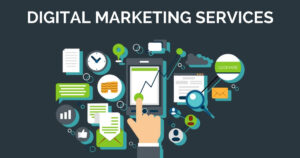In today’s rapidly evolving professional landscape, staying competitive and advancing in
one’s career requires more than just traditional qualifications. It demands a proactive
approach to skill development and a commitment to lifelong learning. Career
development and skills training have emerged as crucial elements in navigating this
dynamic terrain, offering individuals the tools they need to thrive in their chosen fields.
Embracing Lifelong Learning
Gone are the days when a college degree was considered the pinnacle of one’s
educational journey. While formal education lays the foundation, it’s continuous
learning that propels individuals forward in their careers. Whether it’s acquiring new
technical skills, honing soft skills like communication and leadership, or staying abreast
of industry trends, lifelong learning is the key to remaining relevant and adaptable.
The Importance of Skill Diversification
In today’s competitive job market, specialization alone may not suffice. Employers
increasingly value candidates who possess a diverse skill set that spans multiple
disciplines. This trend has led to a shift towards skill diversification, where professionals
seek to broaden their expertise beyond their core competencies. By cultivating a range
of skills, individuals not only increase their employability but also enhance their ability to
tackle complex challenges and pursue diverse career opportunities.
Leveraging Career Development Resources
Fortunately, the digital age has democratized access to career development resources,
making it easier than ever for individuals to acquire new skills and chart their career
paths. Online learning platforms offer a plethora of courses spanning various subjects,
from technical skills like programming and data analysis to soft skills such as project
management and emotional intelligence. Additionally, professional networking sites like
LinkedIn provide a wealth of resources, including industry insights, career advice, and
networking opportunities.
The Role of Professional Certifications
Professional certifications serve as tangible evidence of one’s expertise and commitment
to professional growth. Whether it’s obtaining industry-specific certifications or
pursuing credentials in emerging fields like digital marketing or cybersecurity,
certifications can significantly enhance one’s credibility and marketability in the job
market. Moreover, many employers actively seek candidates with relevant certifications,
viewing them as a testament to their proficiency and dedication to continuous
improvement.
Cultivating a Growth Mindset
At the heart of career development and skills training lies a growth mindset – the belief
that abilities can be developed through dedication and hard work. Embracing a growth
mindset empowers individuals to embrace challenges, persist in the face of setbacks,
and view feedback as an opportunity for growth. By cultivating this mindset,
professionals can adopt a proactive approach to their career development journey,
constantly seeking new opportunities for learning and self-improvement.
Conclusion
In today’s rapidly changing world, adaptability and continuous learning are no longer
optional – they’re essential for success. Career development and skills training provide
individuals with the tools they need to navigate the complexities of the modern
workplace, unlock new opportunities, and achieve their professional goals. By embracing
lifelong learning, diversifying their skill sets, leveraging available resources, pursuing
professional certifications, and cultivating a growth mindset, individuals can position
themselves for sustained success in their careers.
Whether you’re a seasoned professional looking to stay ahead of the curve or a recent
graduate embarking on your career journey, investing in career development and skills
training is an investment in your future success. So, seize the opportunity, embrace the
journey, and chart a course towards a fulfilling and rewarding career.
Read More: https://onlineinfatuation.com/blog/






Excellent post. I was checking continuously this blog and I’m impressed! Extremely useful information particularly the remaining section 🙂 I maintain such info much. I was seeking this certain information for a very long time. Thank you and good luck.
Hello there! Do you know if they make any plugins to assist with Search Engine Optimization? I’m trying to get my website to rank
for some targeted keywords but I’m not seeing very good gains.
If you know of any please share. Kudos! You can read similar text here:
Blankets